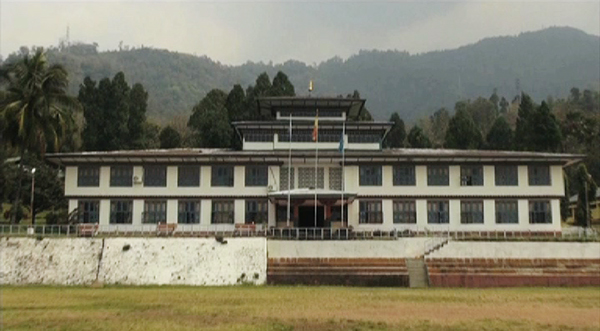 From July this year, Samtse College of Education (SCE) will not take in new students into its Bachelors of Education(B.Ed.) programme. The decision was taken towards the end of 2018.
From July this year, Samtse College of Education (SCE) will not take in new students into its Bachelors of Education(B.Ed.) programme. The decision was taken towards the end of 2018.
The college, one of the oldest in the country, will now focus on postgraduate studies.
Every year, about 200 students enrol into the Bachelors of Education in Secondary Arts programme at the SCE. These students are then expected to teach classes seven to ten students.
However, it has been noted that B.Ed. graduates found it difficult to teach class nine and ten students.
“Increasingly, we were getting feedback from stakeholders and from various fields to upgrade the teacher qualification. For B.Ed. we have only class 12 graduates. The schools, the education ministry, the Royal Education Council, and ourselves, everybody felt that now is the time to increase the teachers’ qualification,” Karma Utha (PhD), the Dean of Academic Affairs of SCE, said.
The decision directly impacts the college’s finances. Being an autonomous institution, the college has several new postgraduate courses in the pipeline and some already instituted to make up for the reduction in the number of students.
The current postgraduate programmes are PGD in Education, PGD in Counseling, and Master of Education in Physics, Chemistry, Biology, and Mathematics.
The college plans to start with the Master of Education in Geography and English, this year. Bachelors of Arts in Social Work will also commence from July.
From 2020 onwards, the college plans to offer Master of Education programme in 11 subjects.
With the gradual transformation into a postgraduate education institute, the college is investing in its human resource.
At present, ten faculties have PhD, while most have at least a master’s degree. Industrial linkages are being strengthened with foreign universities to cater to the increasing demand for qualified faculties.
The college is also working towards getting involved in the selection of students for the postgraduate programmes, which is being done by the Royal Civil Service Commission (RCSC).
“Selecting people for the teacher training programme, I personally feel, is not like any other jobs. You need to have people who have the right attitude, the right aptitude, who genuinely wants to become a teacher. We look forward to people who will come to this postgraduate programme not because they could not get into any other jobs.” Karma Utha (PhD) said.
His Majesty the Third Druk Gyalpo established Samtse College of Education as a Teacher Training Institute in 1968.
In 1983, it was renamed as National Institute of Education launching the country’s first undergraduate programme in secondary teacher education.
Today, the college has over 1,100 students with 50 faculty members.






